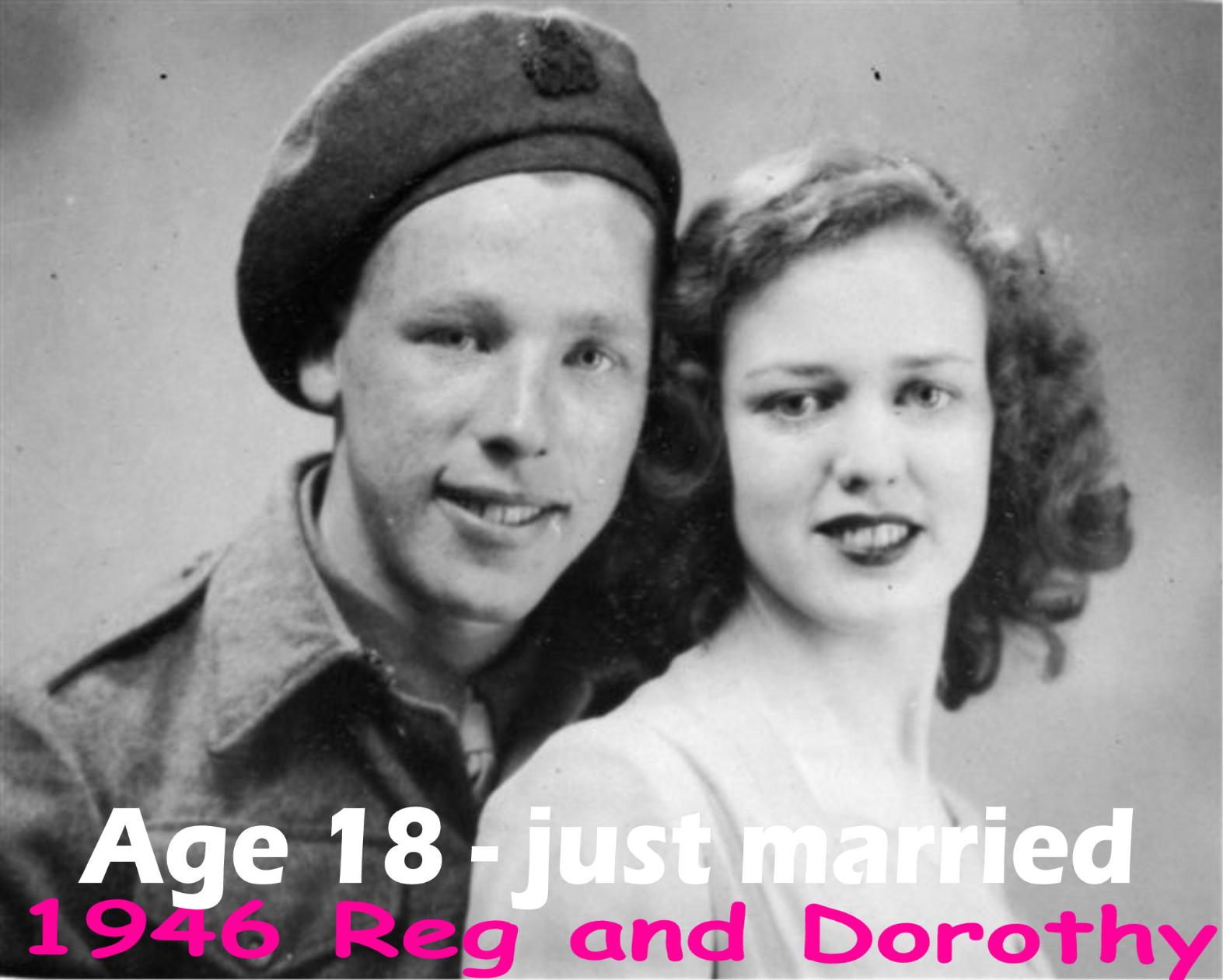
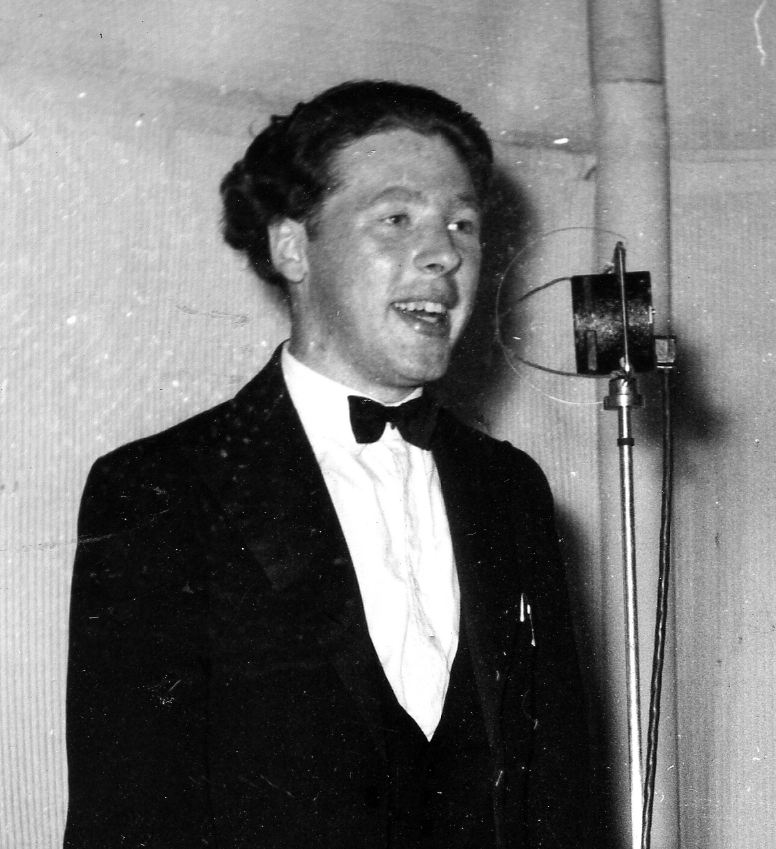
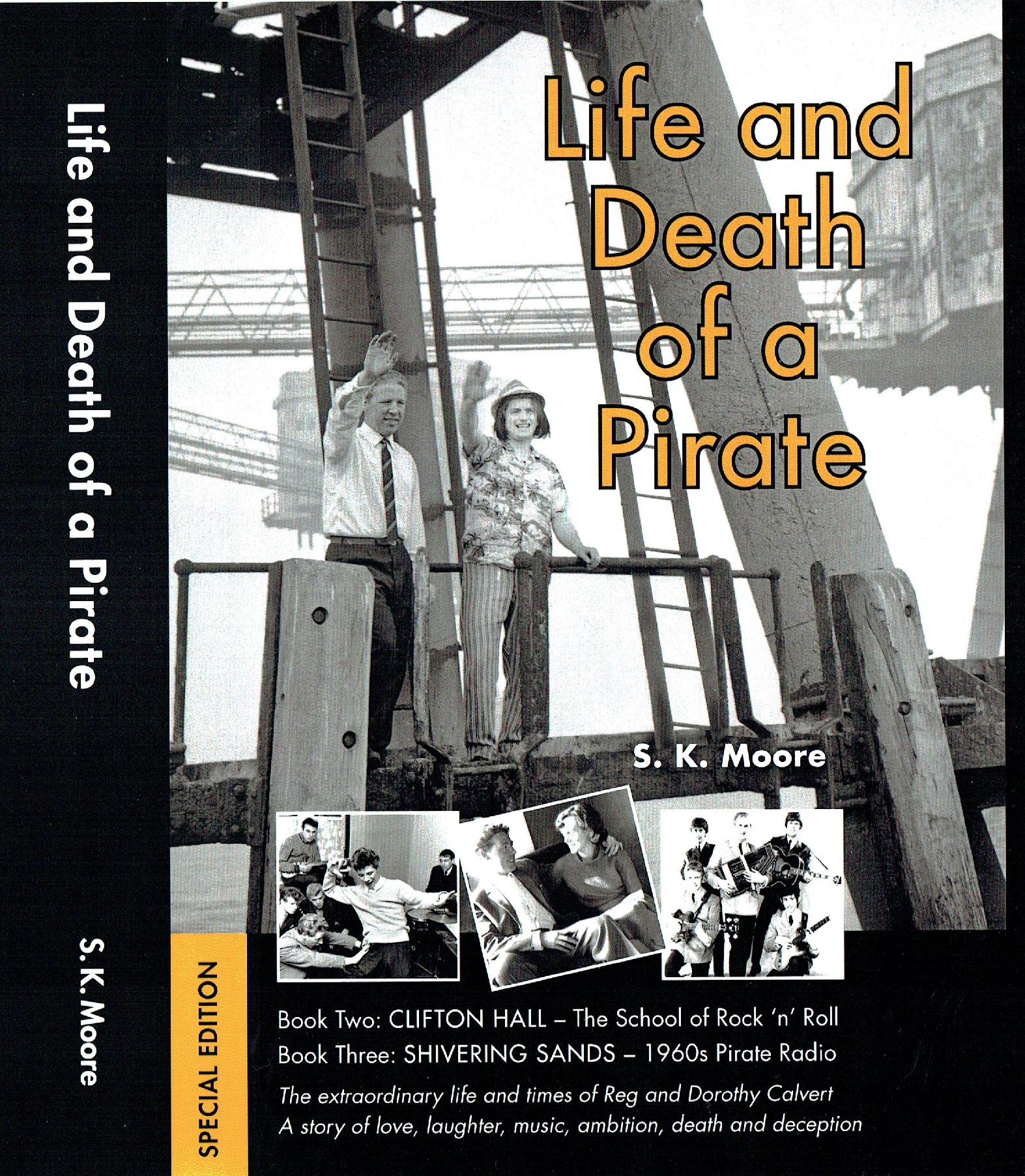
Most people become interested in the Reg Calvert 'story' due to his murder on midsummer's night 1966 and the miscarriage of justice. However, it is worth reading the whole story from 1946.
Reg fell in love with Dorothy and they married against family advice at the age of 18.
They struggled to make way in postwar England living in an old bus where they had two children.
With little work or opportunities, Reg began to make popcorn and sweets.
He became a television and radio engineer.
Then he heard 'Rock 'n' Roll' and decided to bring Rock 'n' Roll to England!
And he did!
Dorothy Calvert, before she died, said to her daughter, Susan.
"I know you will be the person to tell this story."
And I have.
What began as a single book grew into a trilogy to include over 200 photographs.
Woven into the tapestry of Reg and Dorothy's lives are the memories
of some of the people who knew and worked for them.
Book One: POPCORN TO ROCK 'N' ROLL. £7.50 + £2.50 towards p&p.
Books Two and Three combined: LIFE AND DEATH OF A PIRATE £16.50 (to include p&p)
ORDER DIRECT FOR A SIGNED COPY
Fantastic Reviews.
May make you laugh, and make you cry.
Probably the best book with a connection to Pirate Radio.
Email Fillongley Publications: fillongleypub@btinternet.com
to arrange payment by credit card or Pay pal.
The trilogy is also available as Kindle eBooks
Book One: POPCORN TO ROCK 'n' ROLL
The early days. Love, life in an old bus, struggle and laughter.
Reg's dream to bring Rock 'n' Roll to England.
Book Two: CLIFTON HALL School of Rock
By 1961, Reg and Dorothy were employing more 'rock' musicians than anyone else.
When he bought Clifton Hall near Rugby, the musicians moved in with the family.
So much music, recording contracts, fun, laughter and heartache.
Book Three: SHIVERING SANDS 1960s Pirate Radio
Reg dreamed of having his own radio station so he could broadcast his pop music and promote his groups.
He discovered Shivering Sands, abandoned wartime forts in the Thames Estuary.
With Screaming Lord Sutch, they had a summer of fun making haphazard broadcasts as Radio Sutch.
In the autumn, Reg placed the station on a professional footing, renaming it Radio City.
Radio City became the only privately owned station to be successful and profitable.
Most of the other stations were failing due to the lack of freedom and broadcasting laws. When Radio Caroline asked to go into partnership with Reg in 1965, he was unaware they were almost bankrupt.
They promised a new transmitter, but the one they provided was so old, it needed too much power to operate.
By Christmas 1965, Radio Caroline had run out of money and was 'saved' by Philip Soloman, but he refused to pay the debts owed to Radio City.
The former chairman, Major Oliver Smedley, tried various ways to become a business partner, but Reg refused.
When he learnt that Reg was going into partnership with Radio London, Smedley decided to hijack the station
and blackmail Reg for 50% of the profit. Reg refused. Two days later, he shot Reg, dead.
All the witnesses on Reg's side were cancelled at the Hearing
Important evidence went 'missing'.
Smedley said Reg owed him £10,000 for a new transmitter, and that Reg was a violent man.
With no witnesses to say otherwise, Smedley walked away a free man and was awarded costs.
The government immediately went into action to bring in legislation to close down all pirate radio stations.
To everyone's surprise, Dorothy Calvert continued to run Radio City, even though her life was threatened.
When the government closed the station down, Reggie Kray asked Dorothy to continue as he had the "government in his pocket."
Only later, when the Krays were on trial did Dorothy discover that one of the Radio City Engineers was also working for the Krays.
Book reviews include:
'The best book I have ever read.' 'I laughed, and I cried.' 'I was angry, angry, angry.'
'The best book in years with a connection to pirate radio.'
'I couldn't put it down.'
'I did not think I would be reading a murder mystery.'
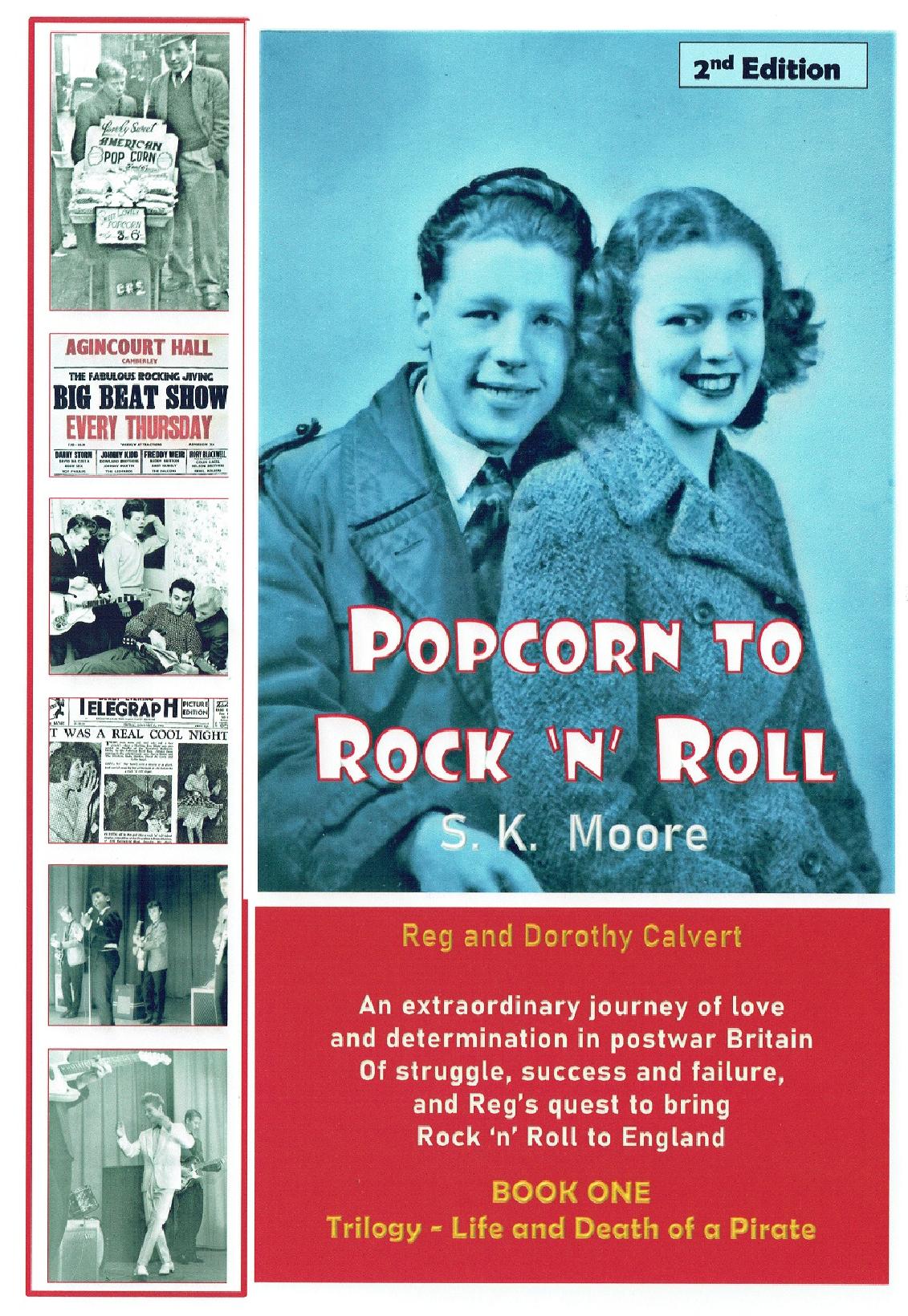
BOOK ONE: POPCORN TO ROCK 'N' ROLL
Paperback 222 pages with 50+ photographs. £7.50 + £2.50 p&p (£10.)
Email Fillongley Publications: fillongleypub@btinternet.com.
Payment by credit card or on paypal.
(Also available as Kindle eBook from Amazon)
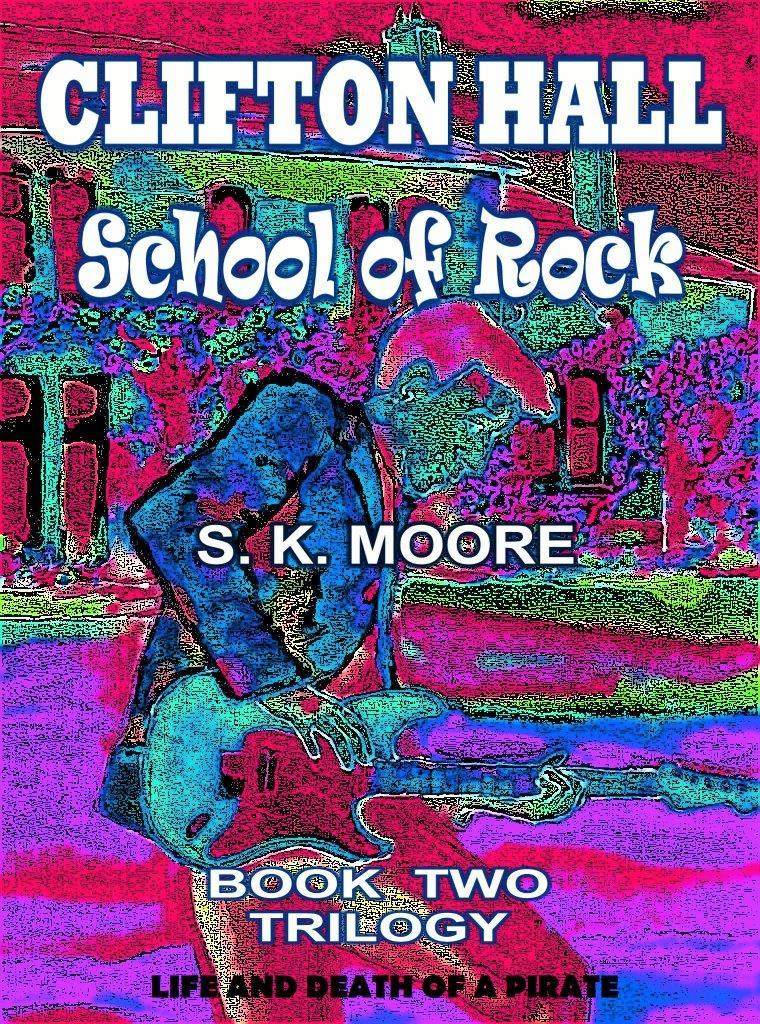
BOOK TWO: CLIFTON HALL - School of Rock. Kindle eBook
Hardback Life and Death of a Pirate (combined with Shivering Sands).
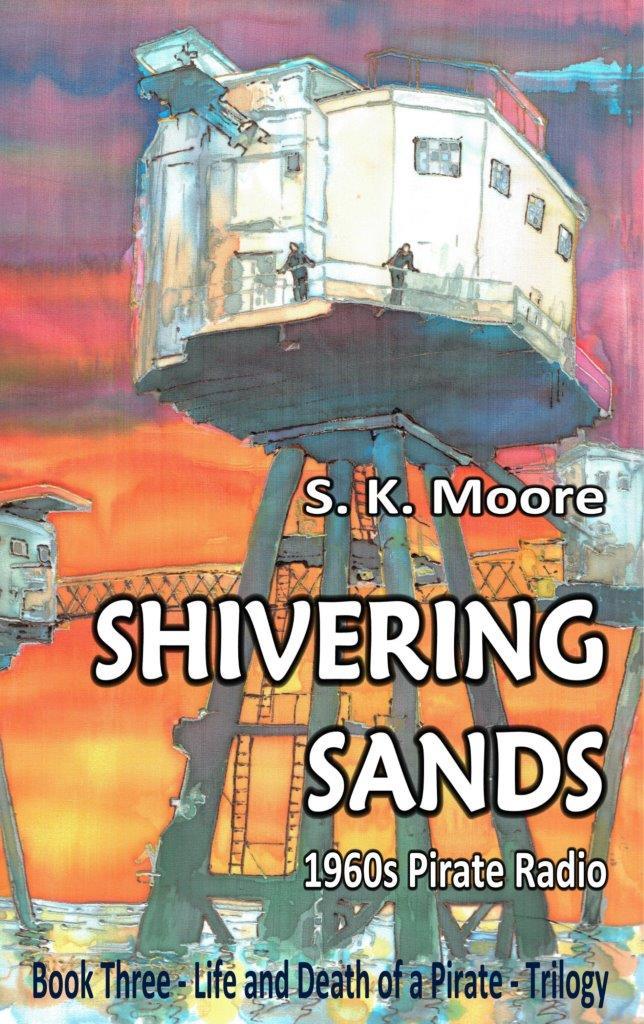
Book Three: SHIVERING SANDS - 1960s Pirate Radio
Available as Kindle eBook from Amazon
Hardback: LIFE AND DEATH OF A PIRATE (16.50)
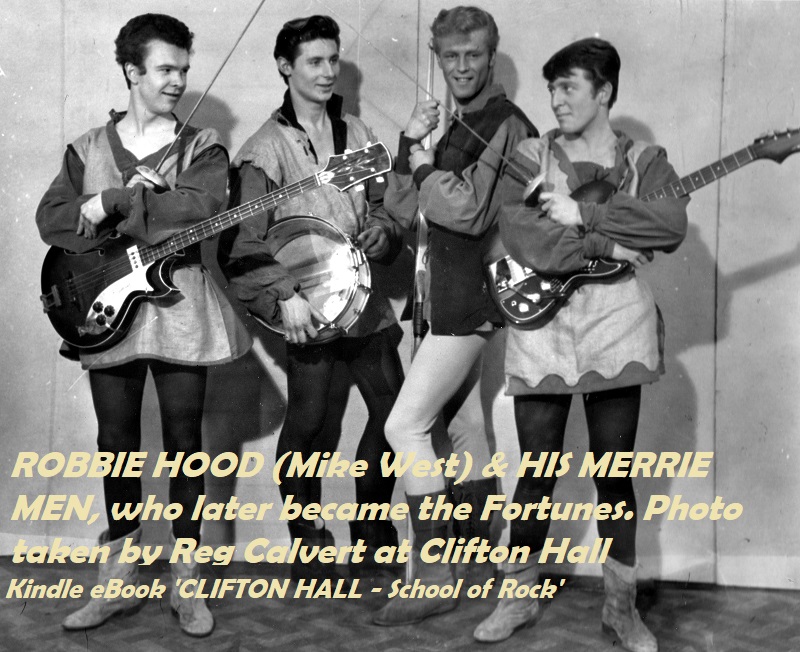
Photo above taken by Reg Calvert at Clifton Hall.One of many photographs Reg took of the groups he managed and mentored. He enjoyed photography and had a darkroom under the stairs. Robbie Hood (Mike West) had previously worked with Johnny Kidd and the Pirates. He was out of work when Reg spotted him in Soho, in the 2i's coffee bar. He asked him if he would like to be 'noticed' and Mike agreed? Mike however, did not conform to the 'strict' regime at Clifton Hall, and left after a while to make his own way. His backing group, two boys from Birmingham, Rod and Barry, and drummer, Gary, were then formed part of a new group THE FORTUNES with Glen Dale and Chris Capaldi. Their story is in the Kindle eBook 'Clifton Hall - School of Rock', and also included in the hardback (double) edition, 'Life and Death of a Pirate'.
LIFE AND DEATH OF A PIRATE
Book Reviews (edited)
Mike Guy: "That was a gripping and ultimately most chilling read. Reg and Dorothy Calvert were remarkable people, both living their dreams and Dorothy is a heroine for carrying on Radio City. I enjoyed the conversational style of writing which made the evens so vivid to follow, especially the often-fraught relationship between Reg and Dorothy."
Roger James: "I laughed and cried, and I've been wracked with nostalgia. The best days of my life were made possible by Reg alone. What a great, great man."
Hans Knot: "I have received 15 books to review this year with a connection to pirate radio and this is the best book by far. In fact, this is the best book I've received in years."
Mervyn Hagger: "I am very impressed with this book (Shivering Sands). The author's research is unique. No one else has achieved what she has achieved."
Luc Dunne: "I laughed and I cried. It is both a fun and sad story of the extraordinary lives of Reg and Dorothy Calvert. They were in the music entertainment business intertwined with establishing and running Pirate Radio (Radio Sutch, later renamed Radio city.) The book has many twists and turns and throws so much light and truth on lies and cover-ups."
Steve Taplin: "I have just finished this excellent book about Reg and Dorothy Calvert, the radio station etc. I just want to say how much I enjoyed it. So well written and completely fascinating. I learned so much about the 'behind the scenes' of the music industry as well as how Radio City really worked. A most enjoyable and absorbing read."
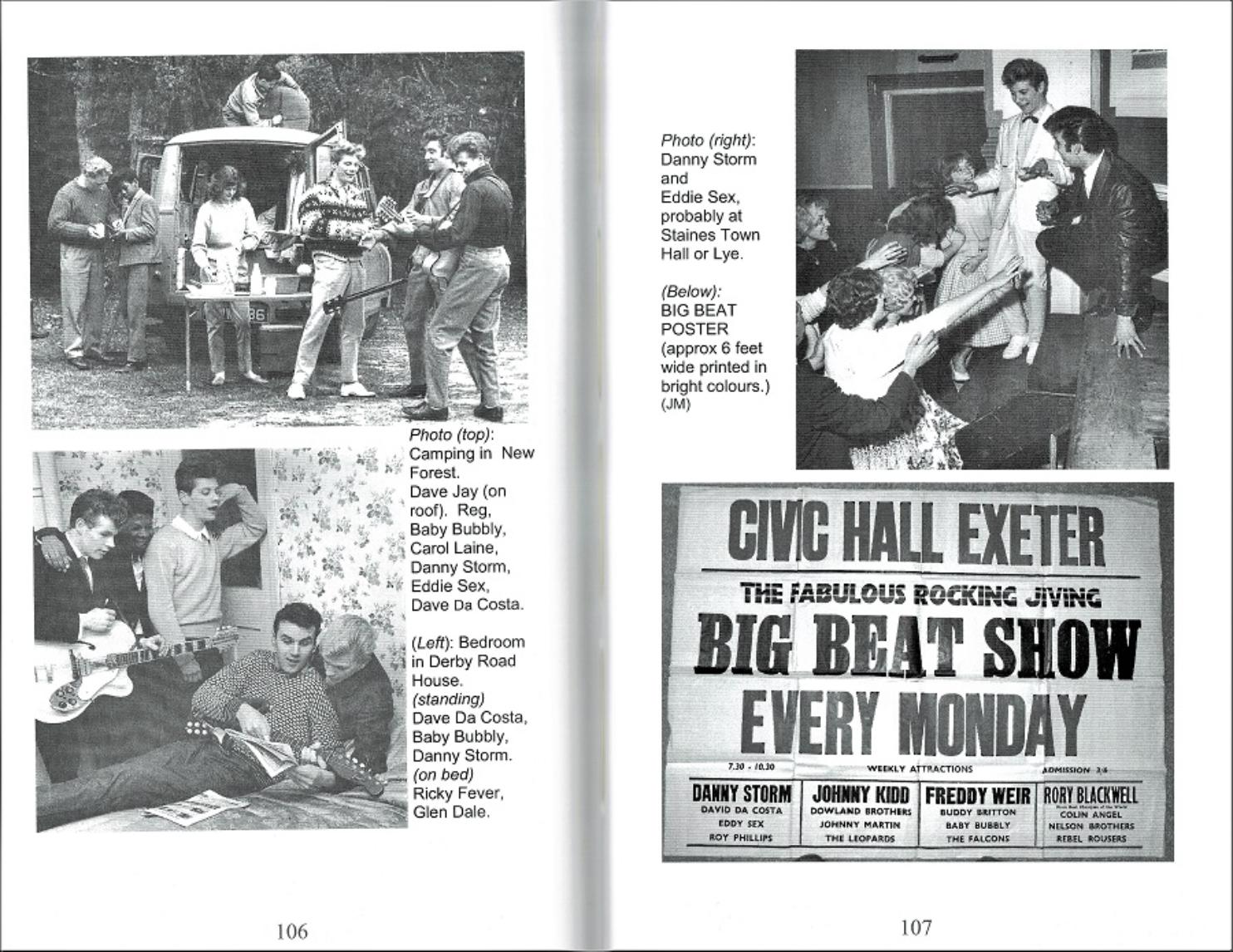
Above: scan of pages 106-7 of first edition Popcorn to Rock 'n' Roll
First edition has now sold out. Second revised and enlarged edition now available
EARLY DAYS - BACKGROUND HISTORY
REG CALVERT: 1928 - 1966
He first glimpsed Dorothy through a window in the office of a local doctor's surgery and thought she was an angel. It was love at first sight. They married aged 18 and with little money, lived in an old bus and travelled south to set up home in an apple orchard at Hedge End, near Southampton.
Dorothy was Reg's anchor and she did her best to guide him through some of his more outlandish ideas. By 1960, he was leading the way in teenage entertainment, employing many of the early 'rock' stars who featured in his shows and he coordinated with the amazing record producer, Joe Meek, providing him with Southern musicians, including Heinz Burt.
There had never been anything like it!
Soon others were copying what he was doing.
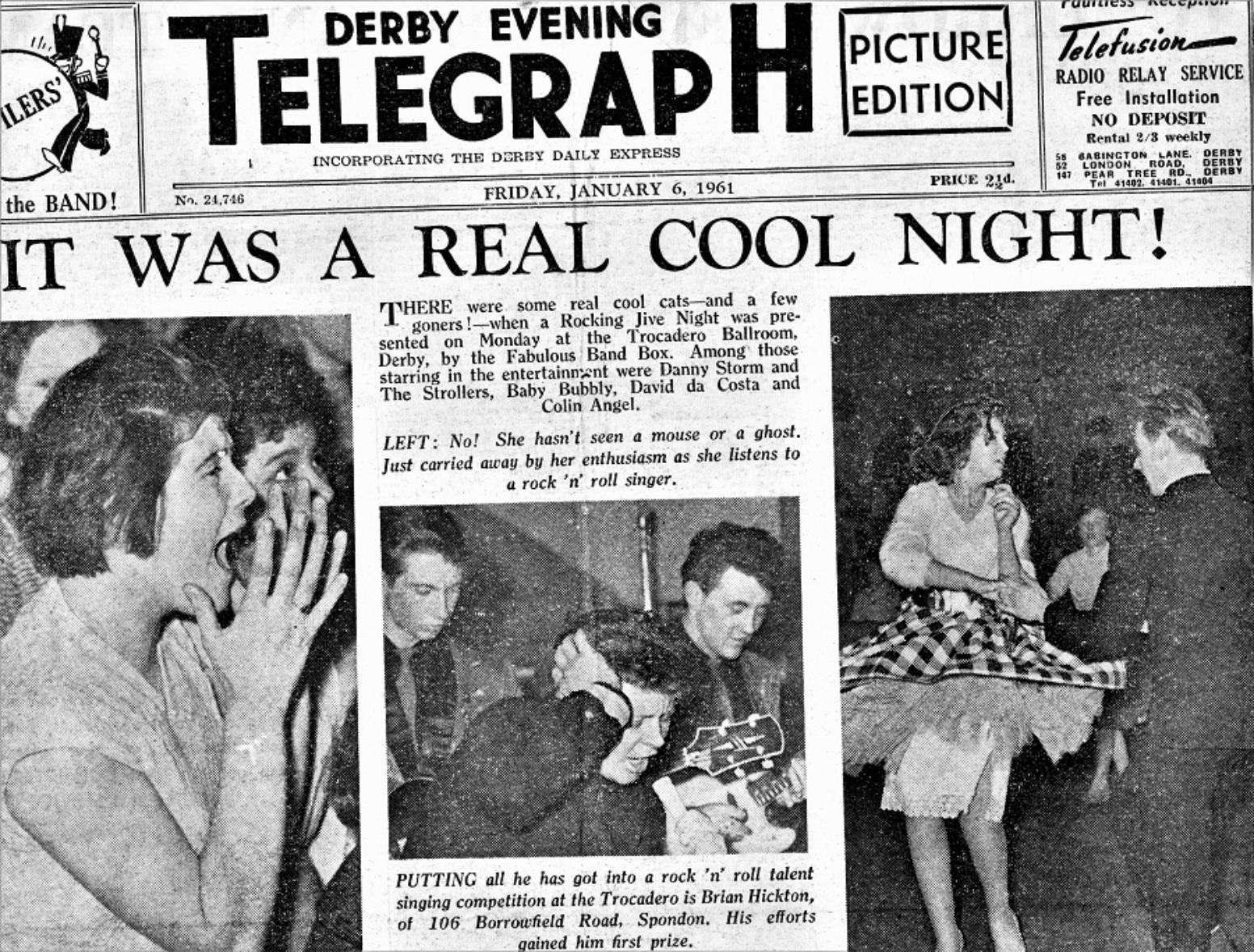
Reg Calvert was the first person to organise dances and entertainment especially for the 'new' teenager. He was first to organise Open Air all night Rock Festivals in the New Forest 1957 and Eastleigh Park, June 1958. The late 1950s-60s saw the rise of the postwar baby boomer generation who wanted their own music and fashions.He organised his own unique style of show and invited top musicians and singers to come and work for him.They toured the dance halls across the south of England to the West Country, towards London, and up to the Midlands.By 1960, Reg was probably employing more young musicians than anyone else in the country.Even the Beatles and the Rolling Stones worked for him at his dances.He would happily agree to audition any young person who asked,and encouraged and mentored a new generation of musicians.
There had never been anything like it!
Soon others were copying what he was doing.
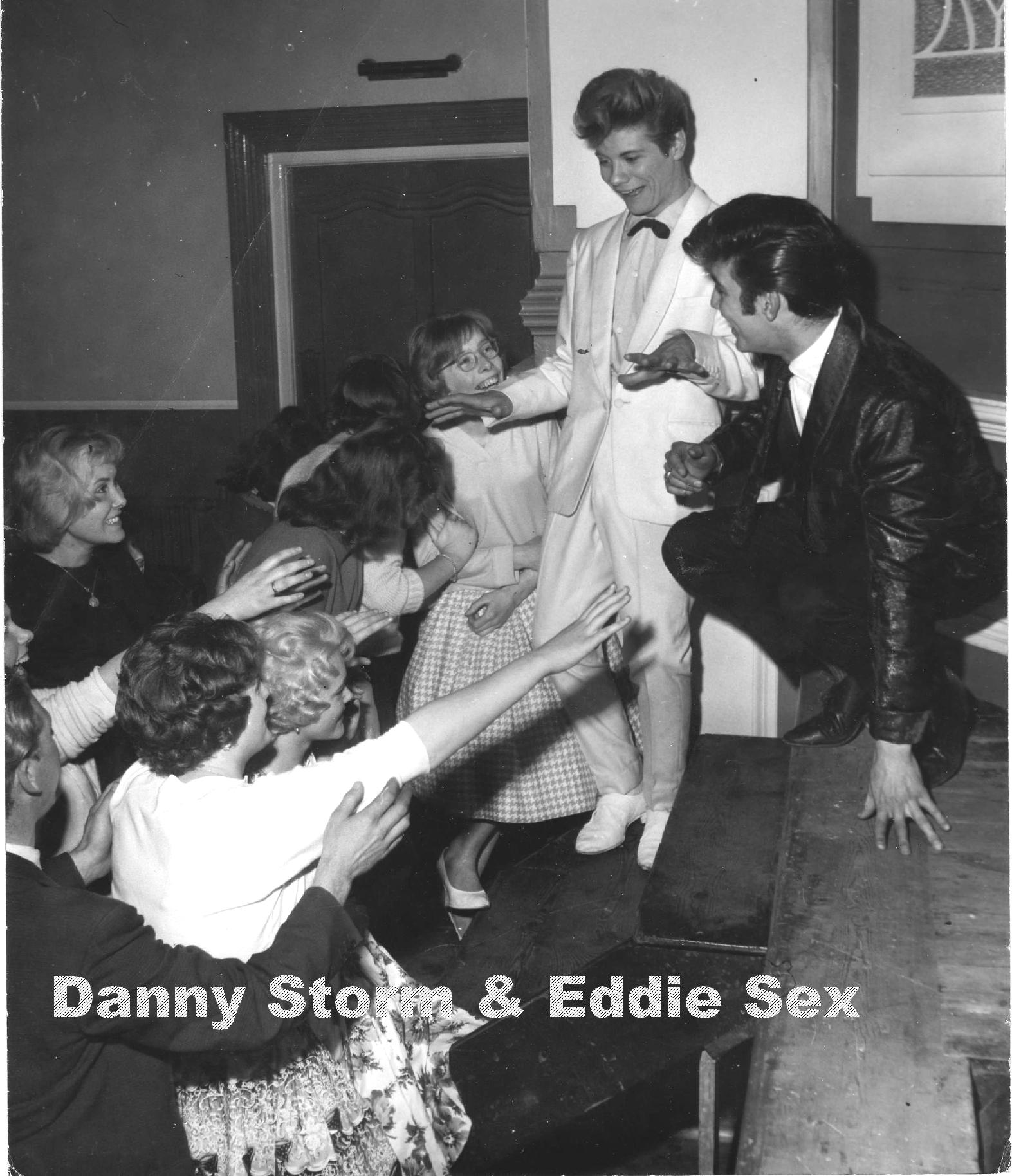
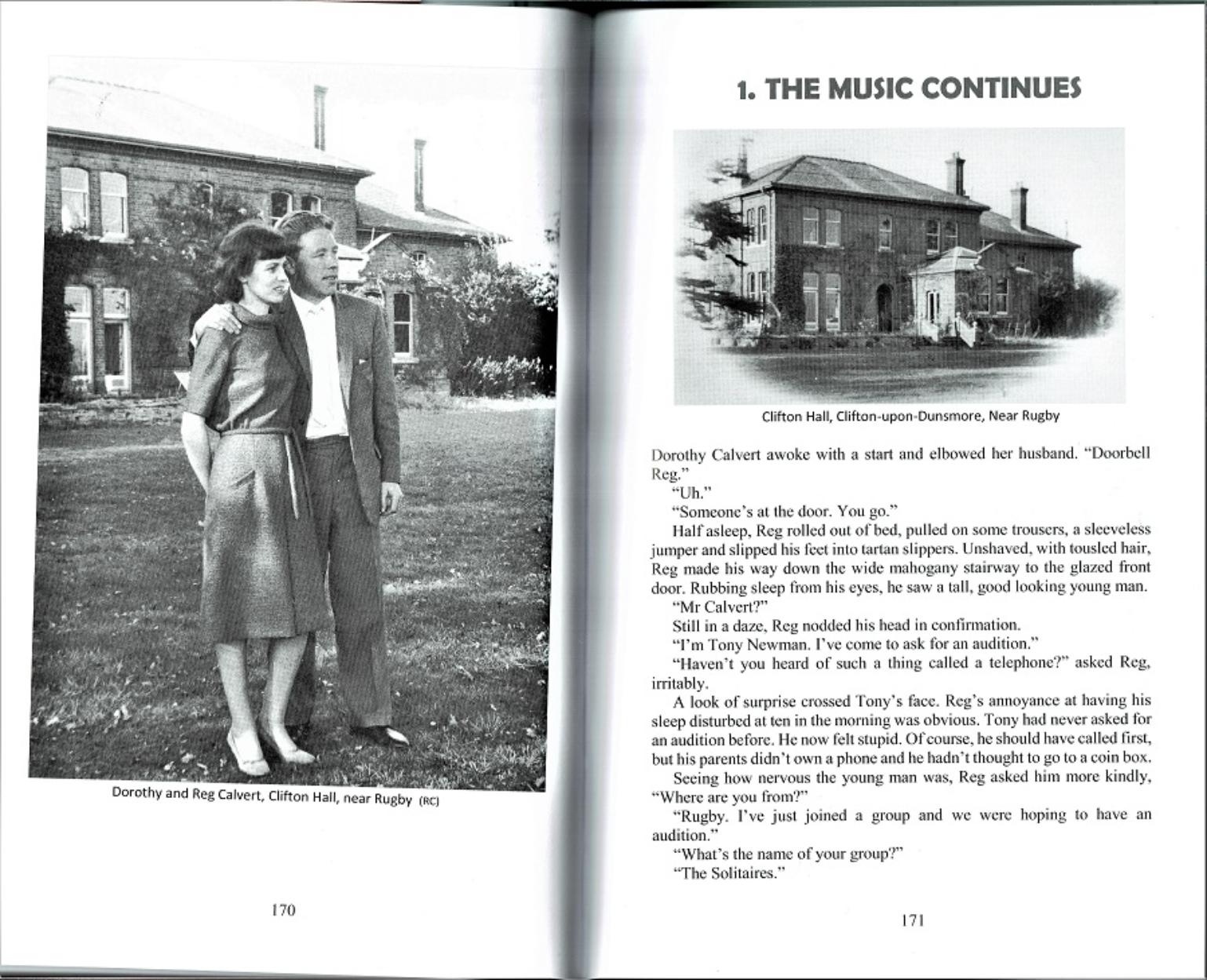
Above: scan of pages 170-1 CLIFTON HALL - School of Rock
Extract from page 47.
"It did not take long for the inhabitants of Clifton-upon-Dunsmore to realise there were strange 'goings on' at the Hall.
Rumour and gossip were rife.
Who were these bohemian young men appearing in their village?
What were they doing, and what was going on at the Hall?
Soon, local and national press were intrigued by this unusual household
and photographers and news reports asked to visit."
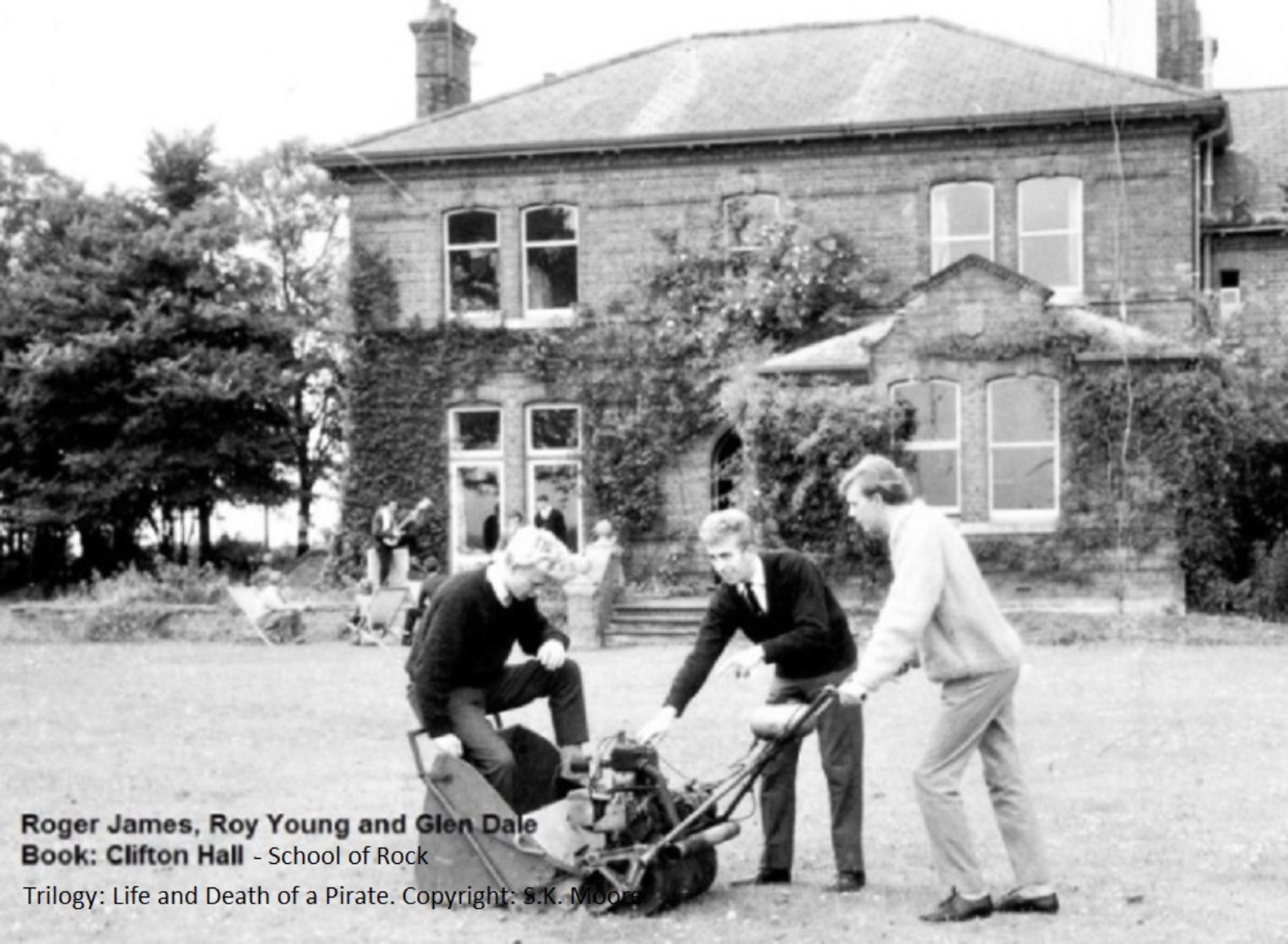
Their memories and stories will live in the books and their music on YouTube
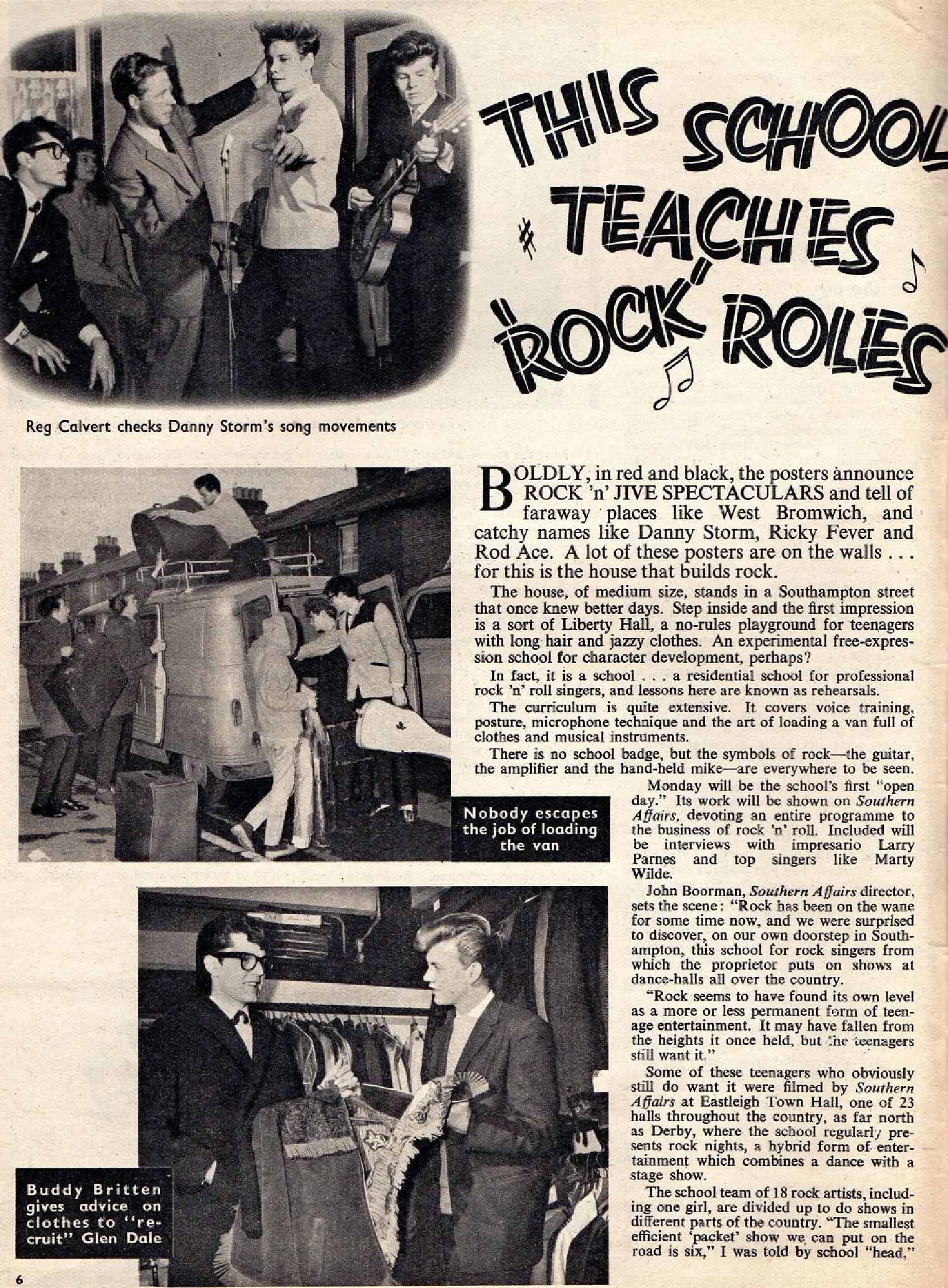
Above: January 1961. Television programme about the School of Rock.If anyone has a copy of this film - please 'contact' S.K. Moore via the contact page.In the 1950s-60s, few copies were retained of television programmes.We do, however, have a colour film, recorded at the same time at Eastleigh Town Hall but with no sound.
February 1962 Pathe Films visited Clifton Hall and made a film which can be viewed on
YouTube "Stately Strollers"
Many musicians featured in the books can be seen on YouTube, including:
Danny Storm. Buddy Britten. Roger James. The Fortunes. Pinkerton's Assorted Colours. Roy Young. Freddy Were - Tony Rocco. David Da Costa. Roy Phillips. etc.
Video recordings of 50 year reunions with Clifton Hall 'stars' still performing and rocking, 2011 - 2016, are not yet available except for two featuring Roy Young singing Whole Lotta Shakin Going On, and Georgia on My Mind.
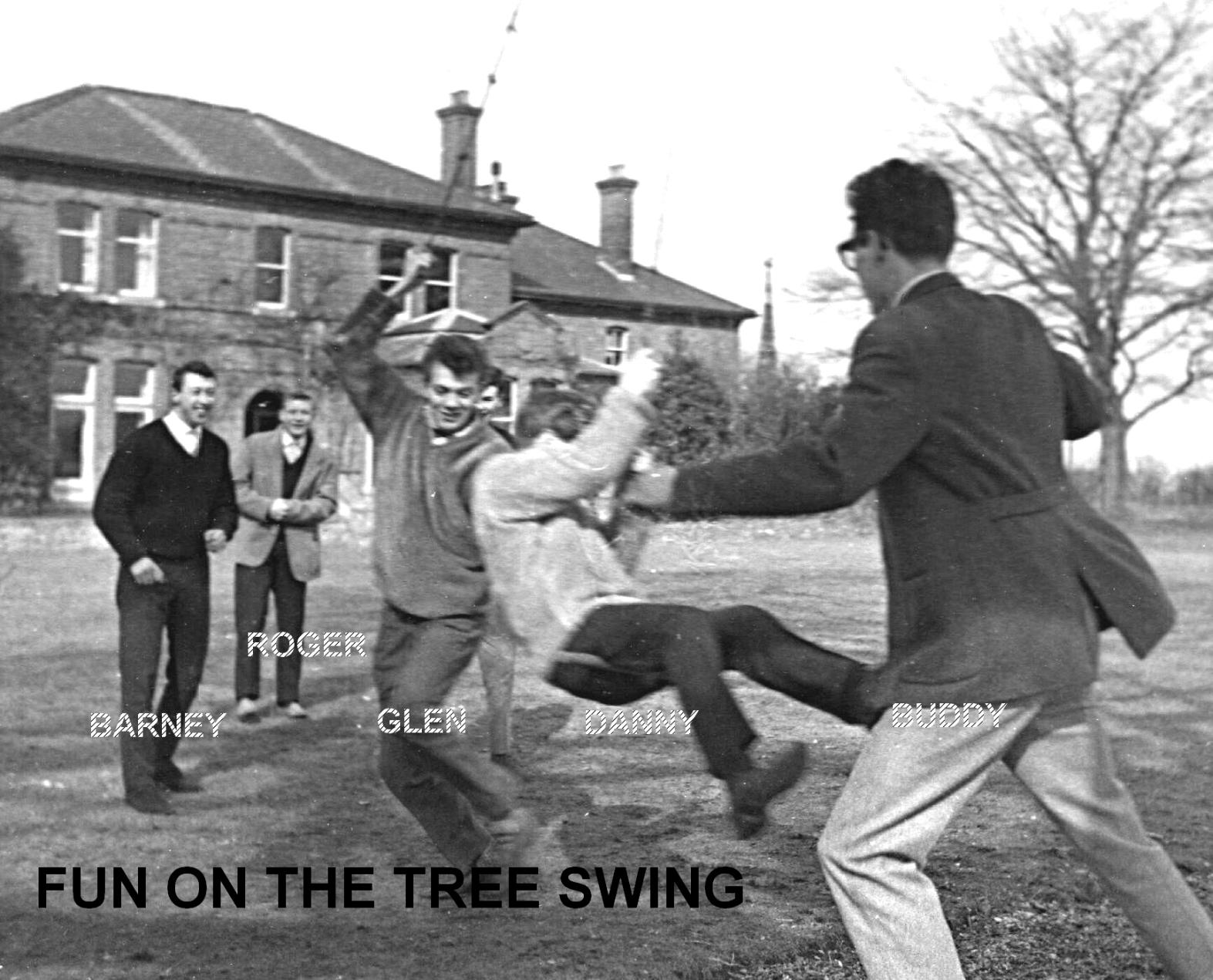
BOOK TWO: Clifton Hall - School of Rock
There are strict house rules which include no alcohol and no girls back, but there is music, much fun and outrageous antics, laughter and heartbreak.
A fast moving story of behind the scenes life in the entertainment businesses.
There is sex, drugs and rock 'n' roll, but not in the way you would imagine.
Many famous stars visit the house including Jerry Lee Lewis and the Beatles.
Below: 1962 The Star Club, Hamburg. The Beatles backing Tanya Day, one of Reg Calvert's singers.
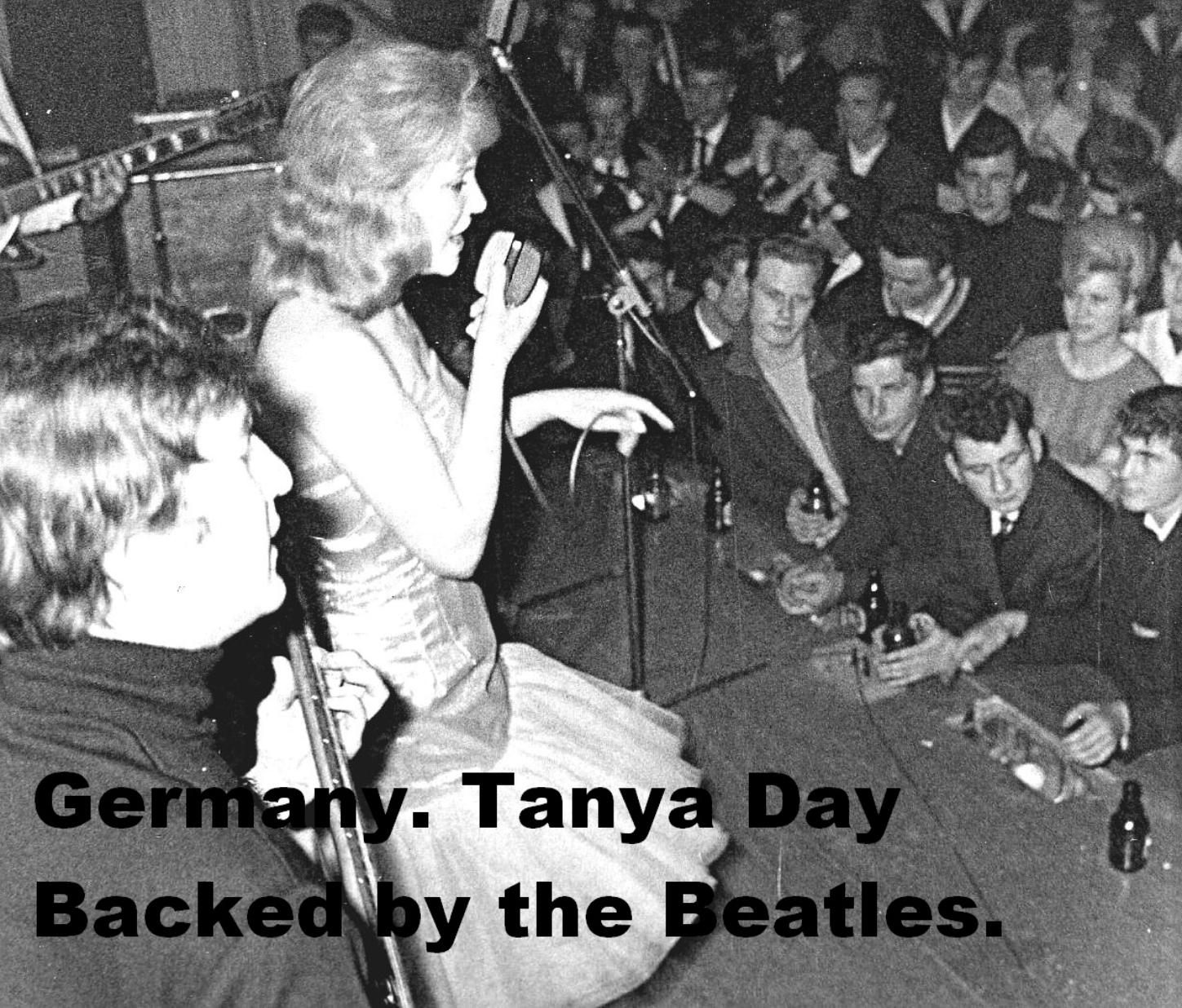
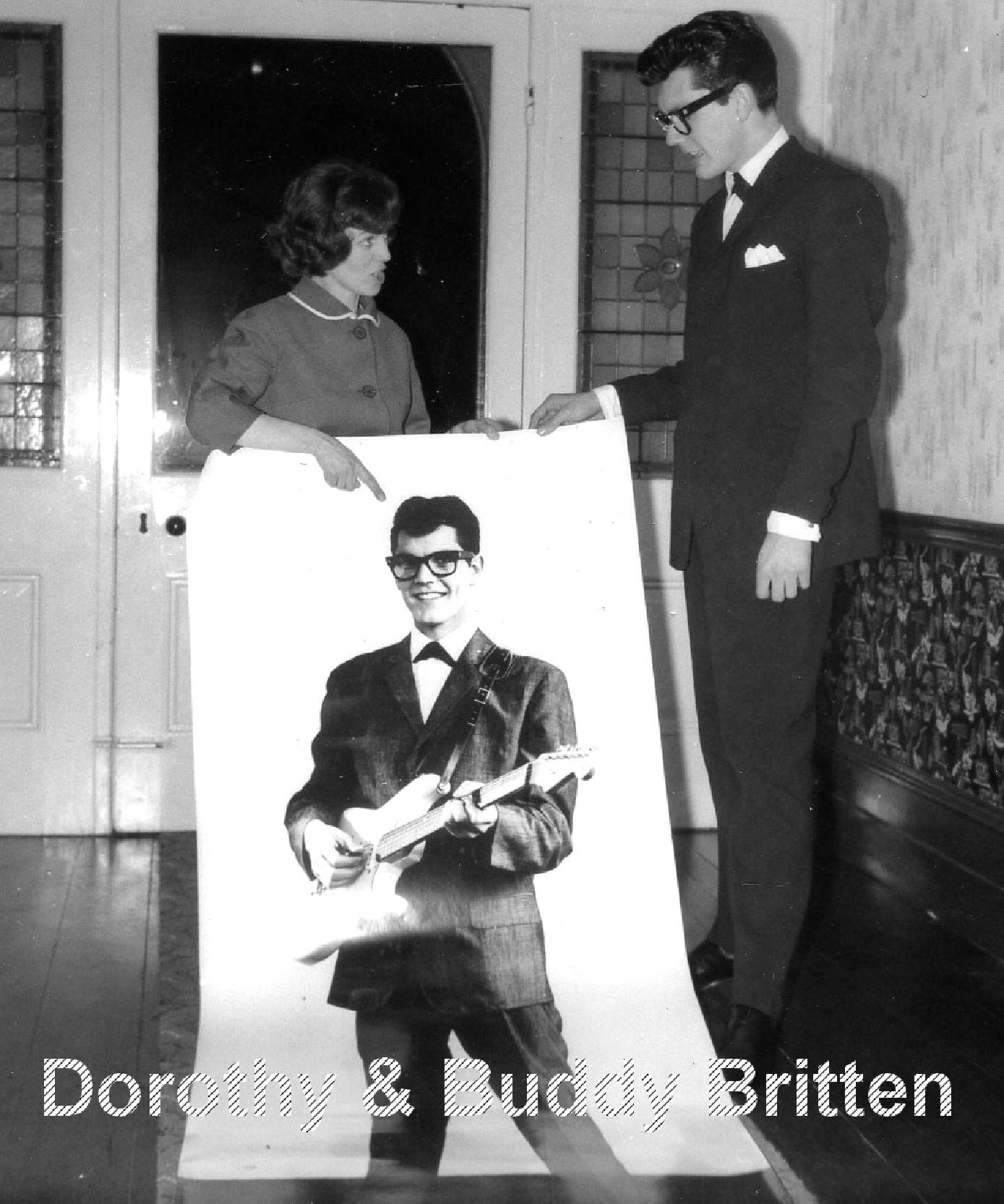
Above: 1961-2 Dorothy Calvert became Buddy Britten's manager.
(Sadly, both Dorothy Calvert and Buddy Britten are no longer with us).
Below: The FORTUNES: Reg put together a group with superb singers.
Glen Dale, Barry Pritchard, and Rod (Bainbridge) Allen. (Sadly, they are no longer with us).
Rod and Barry had previously been part of the 'Merry Men' backing Robbie Hood/Mike West.
As the Fortunes, they recorded a number of hit records including You've Got Your Troubles. On their first LP, their recording of Maria is exceptional and well worth listening to on YouTube.
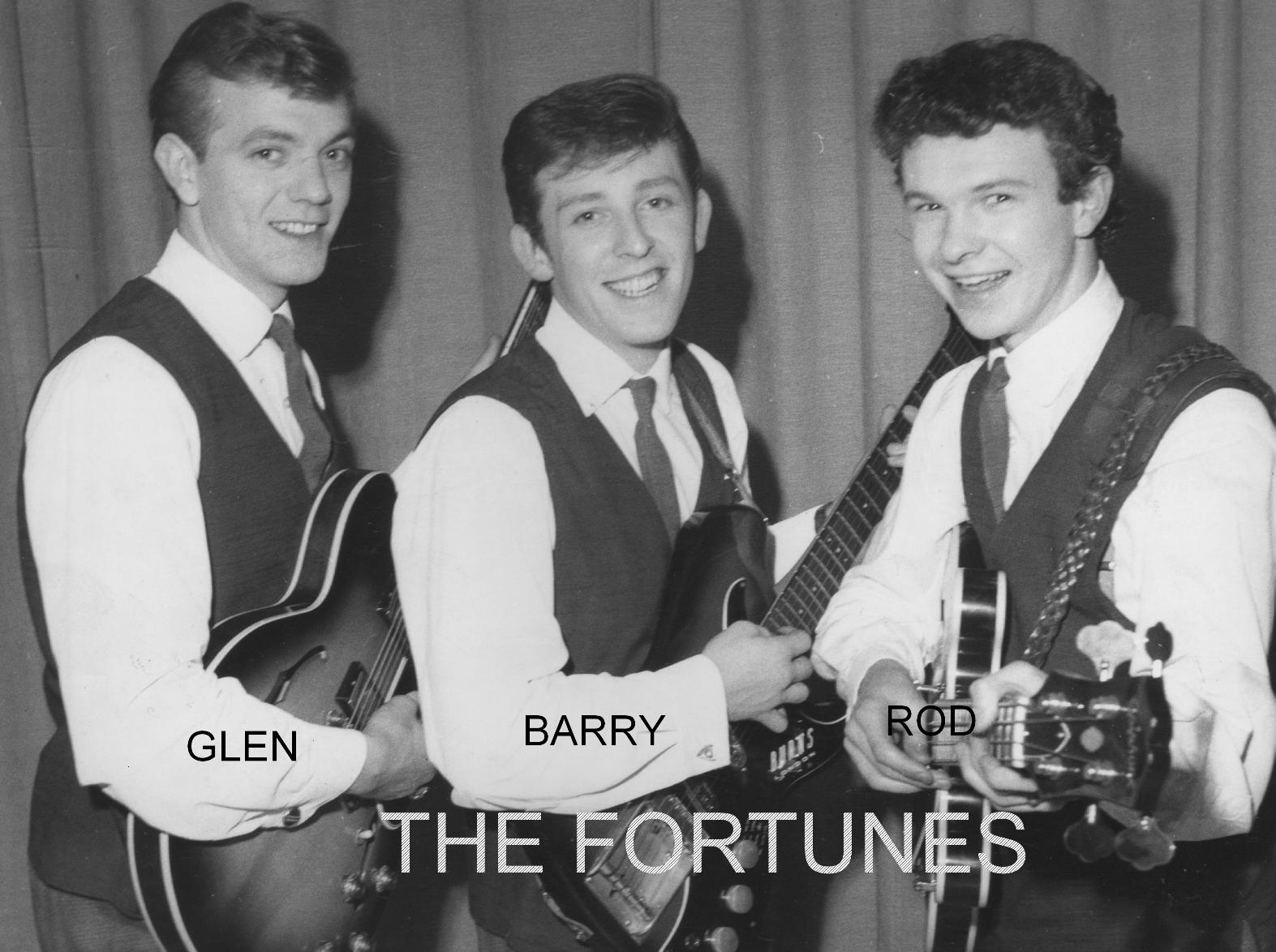
Photo above taken by Reg Calvert at Clifton Hall.One of many photographs Reg took of the groups he managed and mentored.
He enjoyed photography and had a darkroom under the stairs.
The Fortunes music is available on YouTube.
Including: 'Caroline', 'Look Homeward Angel', 'You've Got Your Troubles', and 'Here it Comes Again', are just some you will discover.
Below: Robbie Hood (Mike West) had previously worked with Johnny Kidd and the Pirates.
He was out of work when Reg spotted him in Soho, in the 2i's coffee bar. He asked him if he would like to be 'noticed' and Mike agreed?
Mike however, did not conform to the 'strict' regime at Clifton Hall, and left after a while to make his own way.
His backing group, two boys from Birmingham, Rod and Barry, and drummer, Gary, were then formed part of a new group
THE FORTUNES
with Glen Dale and Chris Capaldi.

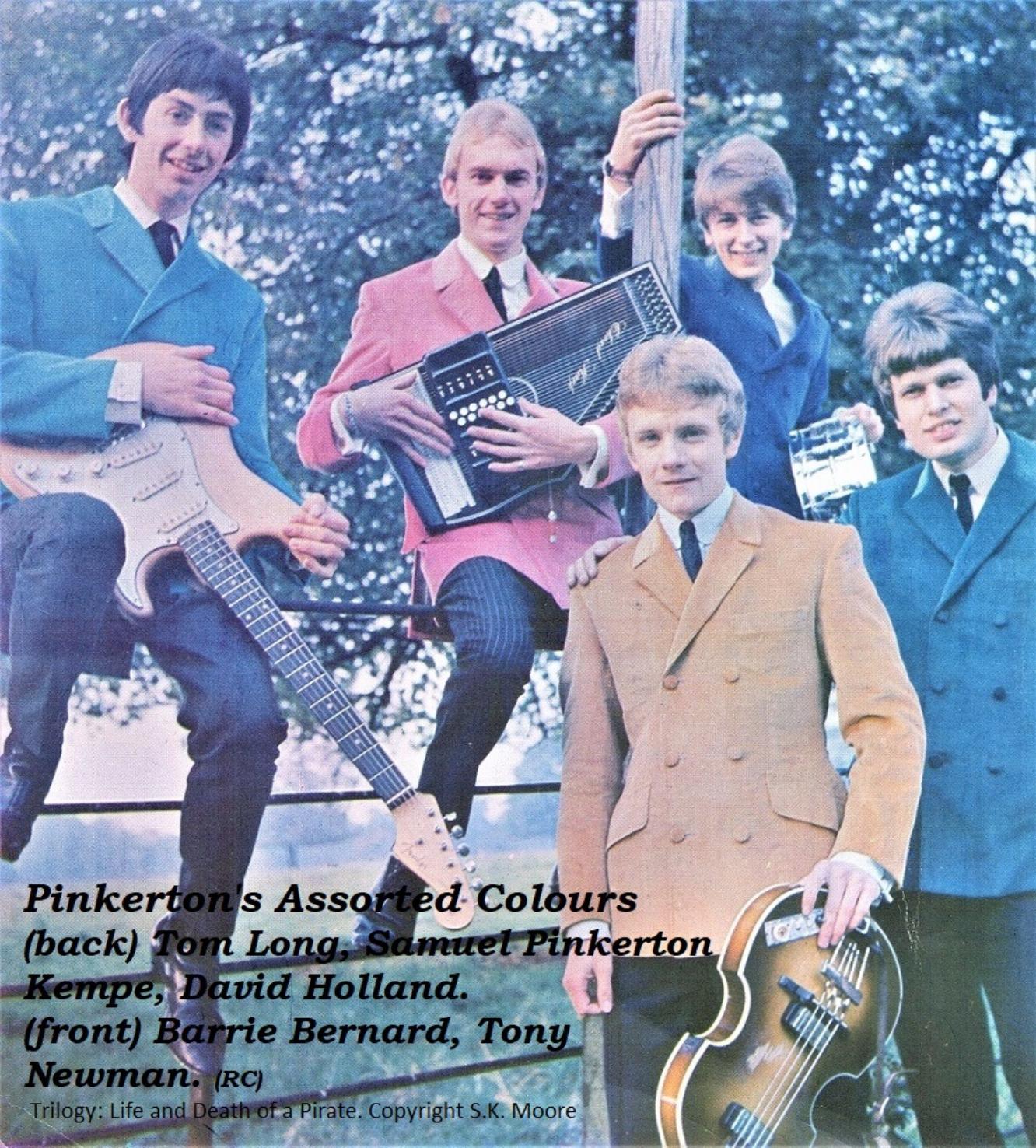
1965 Dorothy Calvert had taken a liking to a local Rugby Group, the Liberators
and persuaded Reg to manage them.
He changed their name to PINKERTON'S ASSORTED COLOURS.
Tony Newman wrote the song Mirror Mirror and it reached the top of the charts in 1966.
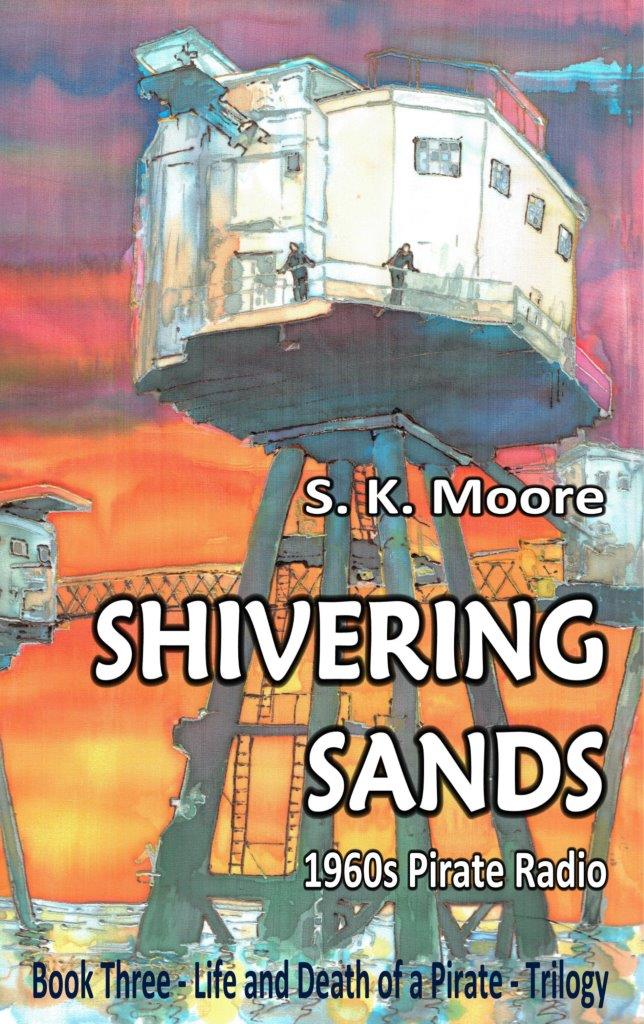
Book Three SHIVERING SANDS 1960s Pirate Radio by S.K. Moore
An exciting and fast moving story of love, laughter, music, conspiracy, intrigue and Murder
1964 - 1967. Sometimes real life can be stranger than fiction.
The book SHIVERING SANDS is often funny but with a tragic turn of events.
Woven into the tapestry of Reg and Dorothy Calvert's lives are the stories of the musicians, singers, pirate radio disc jockeys and engineers.
Within the pages you will meet many characters including Screaming Lord Sutch and Reggie Kray.
What begins with a dream to own a pirate radio station, ends in intrigue, conspiracy and murder.
Gripping story, well researched.
Even today, there are unanswered questions.
The turn of events was to be the catalyst that was to change the face of British broadcasting.
All the witnesses on Reg's side were cancelled at the Hearing and the police lost vital evidence.
Dorothy protested and was called as a last minute witness at the trial, but little notice was taken of her statement.
Major Smedley was released and awarded 250 guineas costs.
The government immediately went into action to bring in legislation to close down all pirate radio stations.
Dorothy's life was threatened as she continued to run Radio City.
It was closed in February 1967 as Major Smedley was organising another plot to hijack the station again.
Reggie Kray asked her to continue Radio City, saying he had the Government in his pocket.
Available as a Kindle eBook and in hardback: LIFE AND DEATH OF A PIRATE
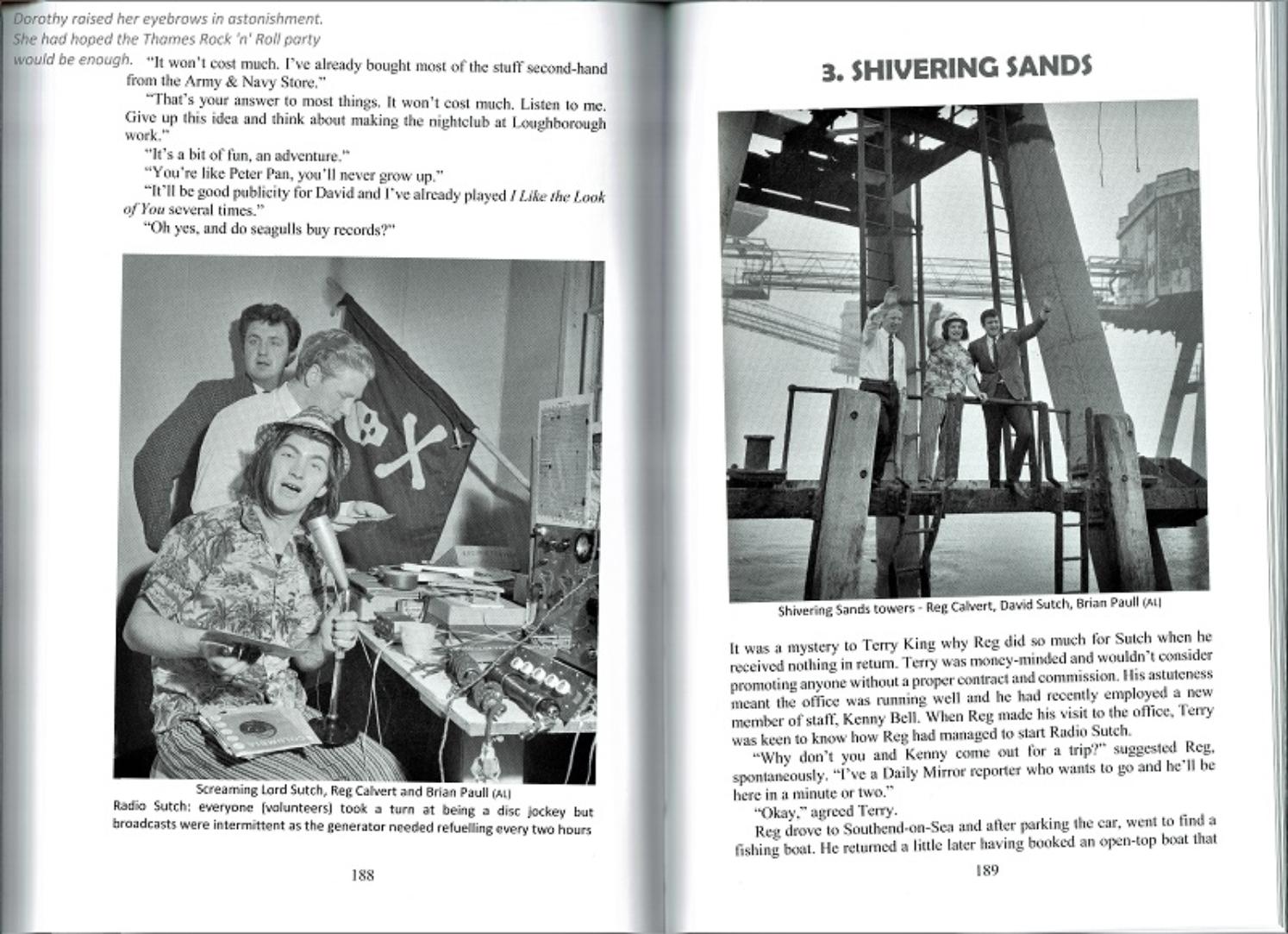
Above: Scan of Pages 188 - 9 from Shivering Sands - 1960s Pirate Radio
Below: the launch of Radio Sutch. A Rock 'n' Roll party on the Thames.
The boat played loud rock 'n' roll while sailing past the Houses of Parliament, announcing the start of a new 'pirate' radio station, Radio Sutch.
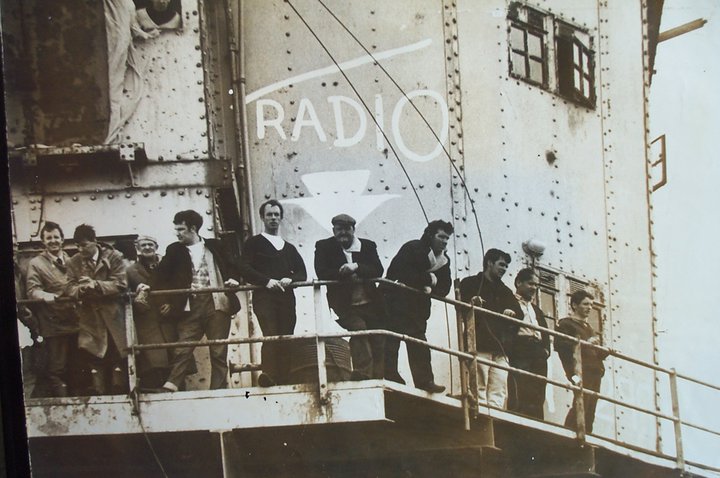
Above: June 1966.
The Hijack Boarding Party
Police on the left, Phil Perkins with white t-shirt under V-neck jumper. Big Alf - boarder plus more boarders. End right: Lesley Dunn, Radio City chef. Looking through the window at the top is disc jockey Ian McRae.
Below: May 1966 onwards - postcard with disc jockeys and photo of Shivering Sands, sent out to listeners in reply to requests and fan mail.
REG CALVERT THE BOY
Childhood memories sent in a letter to the author from Jim (Arthur) Addy.
1938
One sunny summer afternoon the peace in our street was disturbed by a giant pantechnicon towing a large trailer. On the rear was a sign 'Max Speed 20 mph. With trailer 16 mph.' The vehicle stopped at no. 33 Calton Street, Huddersfield. It was owned by Mr Turton who rented out the houses on either side. All the lace curtains twitched and the ladies saw a massive dog. It was a black Newfoundland and holding the lead was a boy of 10. An elderly couple stepped out, Tom and Lila Calvert, the boy's grandparents.
Next day, my friend Bob and I met the new boy, Reg, with his dog and we quickly became the best of friends as children do. We played games, cycled and enjoyed the putting green at the park.
Tom Calvert was an engineer and had a good job at David Browns in Huddersfield. In the evening he played alto sax and clarinet in the local dance bands. They had moved from Colne, Lancashire where the family had 'Calvert's Music Shop'. Tom had the first saxophone in Lancashire and each month he received the latest dance music scores. He probably worked in engineering while Lila ran the shop.
When the war started on 3rd September 1939, fireworks were banned and there was to be no bonfire on 5th November. Reg and I soon found out how to make gunpowder and our own fireworks. We made some big bangs but luckily we didn't injure ourselves.
Reg bought some old telephones on wooden mounts and we fitted theses to our bedroom walls and had a three way telephone between Reg's house, mine and Bob's. Bob became the telephone operator and could connect us. We could only afford one length of wire for the incoming call so Reg connected the system up to the water pipes for the outgoing conversation. All the neighbours complained when it affected the local radios.
1942 When Reg left school (age 14) his grandfather got him an engineering apprenticeship at David Browns. Reg wanted to be an electrician so he left and got a job with an electrical contractor. Then he became interested in ladies hairdressing so did an apprenticeship with Miss Copley, the finest ladies hairdresser in town. She was also a posticher (wig maker) so Reg learnt how to make wigs as well. Miss Copley's brother owned Banks in Australia.
Before the war, perfume was imported from Paris but when the Nazis occupied, the supply dried up. Reg persuaded Miss Copley to allow him to install an illicit perfume still in her attic and it worked night and day, producing perfume.
When we were 16, in the Easter break, Reg and I cycled the 80 miles to Morecombe and Lancaster. We visited his mother, Ada, who had married and had 2 little girls a that time. We stayed the night and next morning we went down the coast to Blackpool to visit some friends. Late in the afternoon we left and cycled through the night to be home for work on Wednesday morning. In the evening, Reg was now playing E flat alto clarinet in local dance bands for 15 shillings a night. Sometimes he played piano with a trio.
Spring, 1945 we were aged 17 and it was obvious that the war in Europe would soon be over. The Holme Valley near Huddersfield is 7 miles long and there were hundreds of soldiers in training and they each had a girlfriend. Reg saw the PCC at Holmbridge Church and asked if he could rent the Church Hall on Victory Night.
"When is it?" they asked.
"I don't know," replied Reg. "Even Churchill doesn't know."
"We could be having a Whist Drive," they replied.
"Pay you double," said Reg.
"Done" they agreed.
Reg then went to see Aub Hurst who ran the best dance band in Huddersfield to ask him to play for him on Victory Night.
"When is it? ... etc etc."
Reg negotiated double rate and booked the band for Victory night.
When Churchill came on the radio to say that the war in Europe was over, he declared the next day to be a national holiday. VE day.
I helped Reg and he hired a taxi for the day.
We loaded it with huge loud speakers and a powerful amplifier which would only work from a mains supply.
Calling at every village in the valley, Reg would knock on doors and smile to persuade the lady of the house to allow him to plug his amplifier into the house electricity. Then he announced to everyone that there would be a Grand Victory Dance at Holmebridge.
The hall was packed all night and after Reg had paid for everything, he made over £200 profit. An average weekly wage was £5 at that time. Soon after, aged 18, he was conscripted into the army and they paid him 3 shillings a day (15p) and a very small allowance for Dorothy.
My mother, Margaret Addy and my aunt Clara, thought the world of dear Reg.
They said it was like a ray of sunshine when he visited them.
His was not a wasted life. He gave joy to millions.
I shall always remember him and think of the many, many happy hours we spent together.
P.S. I wept a little when writing this."
Jim (Arthur) Addy (These memories are compiled from his letter to the author).
Reg Calvert grew into an amazing young man, creative with a brilliant mind. He could turn his hand to almost anything - and he did! Both his parents were professional musicians, his father a violinist and his mother a superb clarinettist and saxophonist. She travelled the world, played in orchestras and performed in many famous women's bands including with Ivy Benson. Reg was brought up by his grandparents and adored by his grandmother. His grandfather, Tom Calvert, was clever, an engineer and musician. Their home was often turned into an engineering workshop as Tom developed his 'big' idea, to build a machine that could work on centrifugal energy. Reg often helped his grandfather and developed an inquisitive mind and basic understanding of engineering.
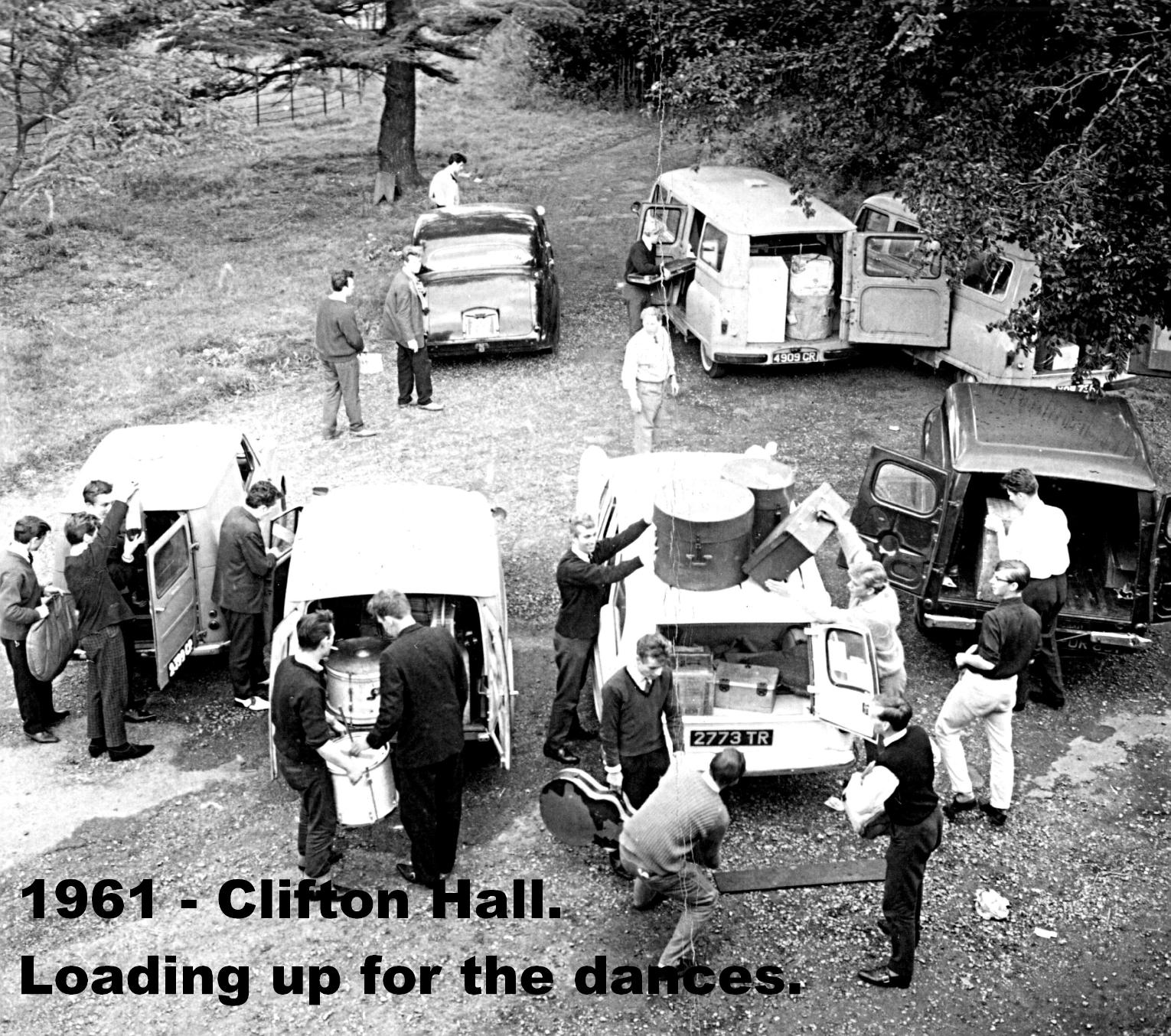
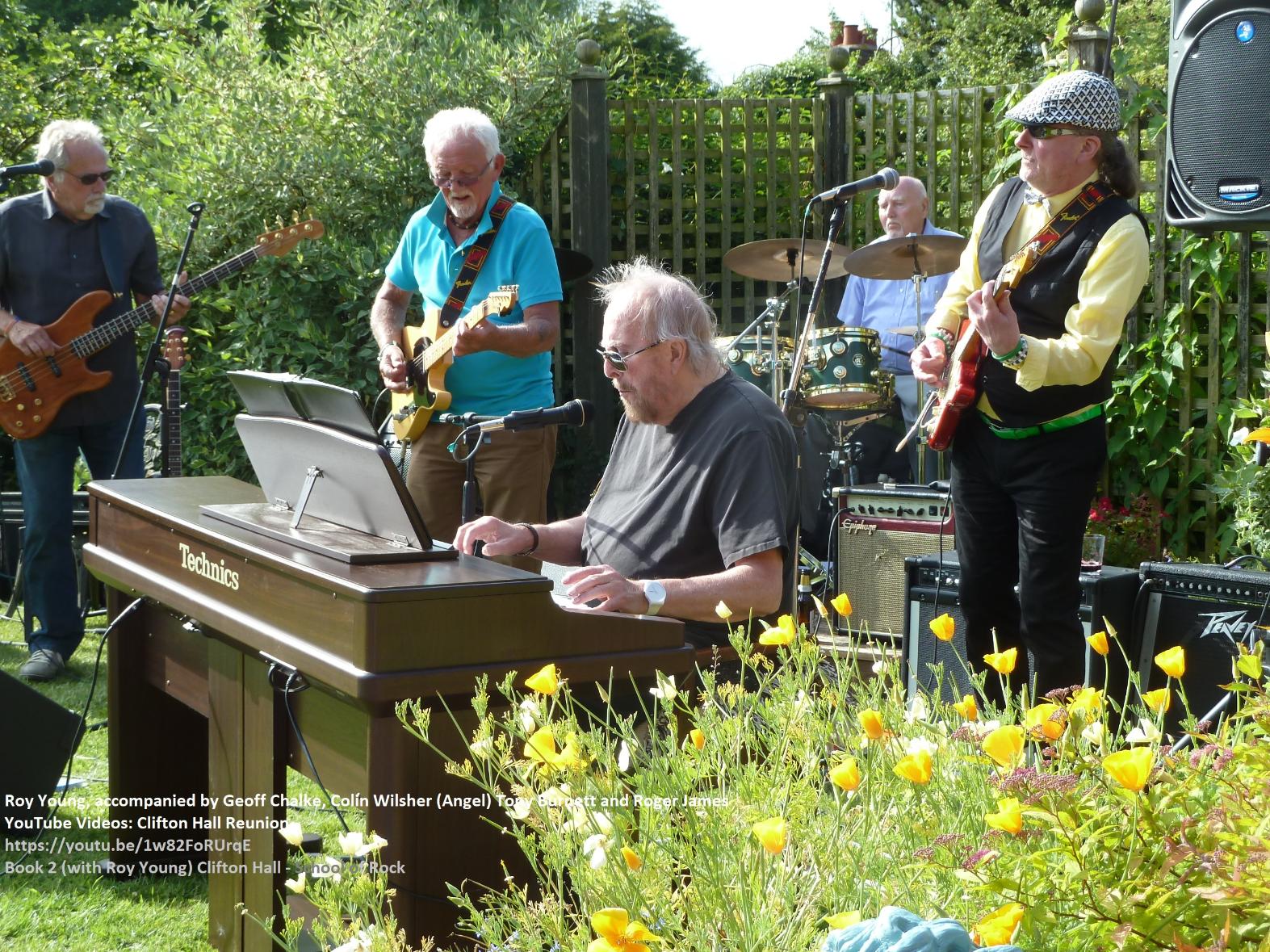
They all feature in Book Two: Clifton Hall - School of Rock. They moved into Clifton Hall in 1961 with Reg and Dorothy Calvert. It was a time of much fun and laughter. Behind the scenes and glamour of show business, is a story rarely told, of the casting couch for boys, and Reg and Dorothy's determination to find another way for their boys to obtain recording contracts. Danny Storm and Buddy Britten were first to gain recording contracts. Roy Young went to Hamburg with Reg and was offered a residency at both the Top Ten Club and later at the Star Club, where he performed with the Beatles, alongside, Tanya Day, one of Reg's singers, who was backed by the Beatles.
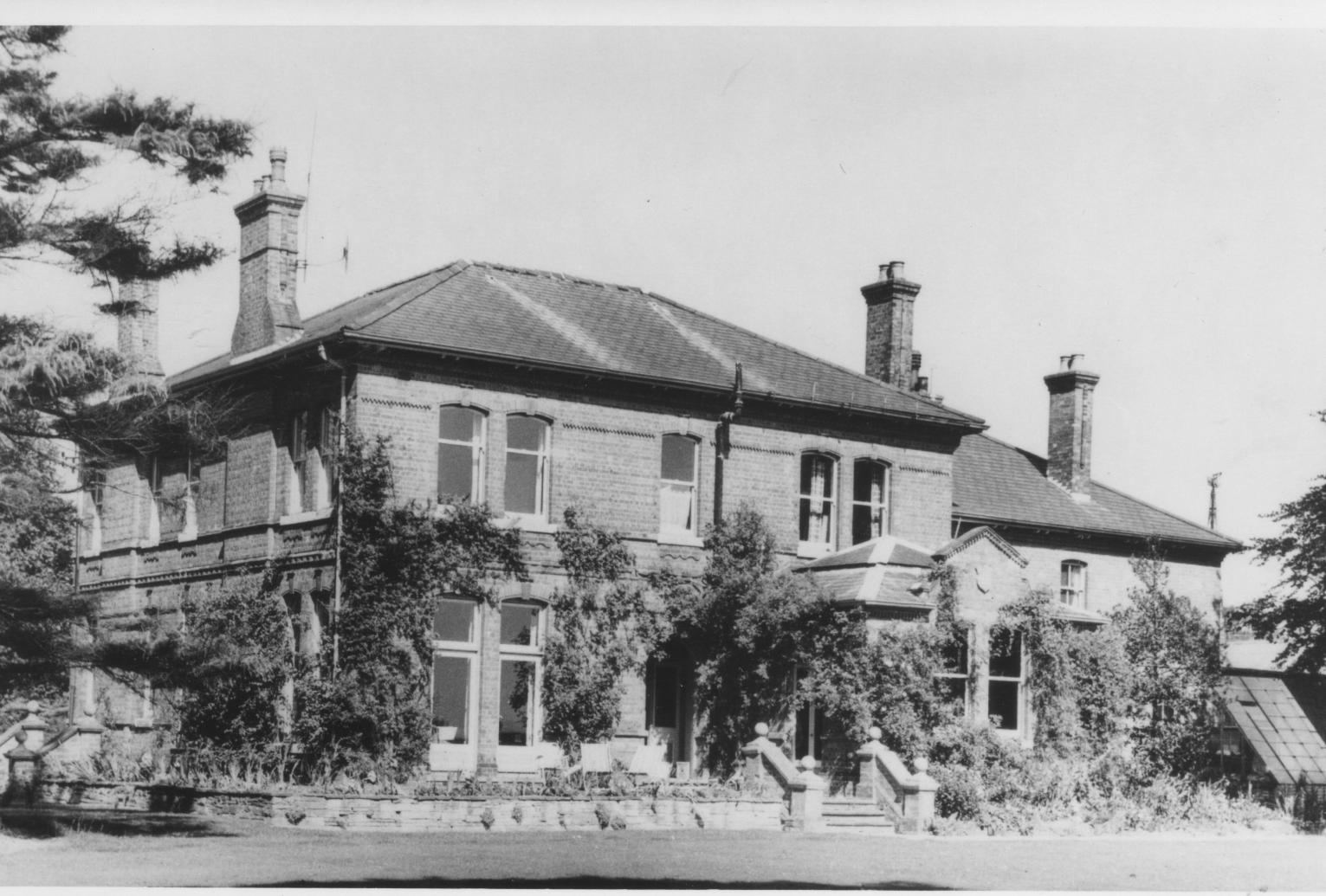
LIFE AND DEATH OF A PIRATE
STAGE PLAY
Now available for theatre groups to perform, with or without music. Projected images also available. Flexible script to suit varied size of theatre groups.
Many things have been written about the 1960s. Most of it myth.
This is a true story that will hold your audience from beginning to end.
Reg Calvert is a 'character' like the 'Greatest Showman'. He attracts musicians and singers to work for him and many zany characters. His wife, Dorothy, is long-suffering. A play with much fun and laughter, about ambition, music, love, heartbreak, conspiracy and murder.
A double bill - combining two plays, 'School of Rock' & 'Death of a Pirate'
Rehearsal Filmed by BBC Midlands Today, featured the play and interview with Susan Moore on 3rd November 2011.
For photographs from the play - see PHOTOS from play page.
More information contact: susan _ calvert@ btinternet.com
Email: fillongleypub @ btinternet.com
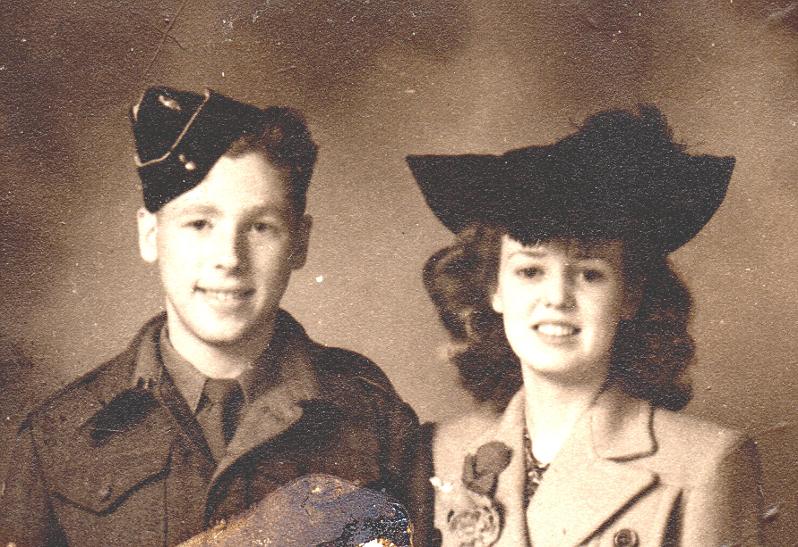
THE EARLY DAYS
Top: June 1946 Reg and Dorothy Calvert on their wedding day.
Below: 1954 Dorothy and Reg Calvert in their sweet shop, Hartley's, near Northam Bridge, Southampton.
Right: Selling Popcorn. Postwar Britain. Reg was demobbed from the army and with a little money, bought an old bus. He converted it into a caravan and Reg and Dorothy travelled south from Huddersfield and lived in an apple orchard at Hedge End near Southampton for three years while he tried to earn a living. Reg did a variety of things, including making popcorn and selling it on the markets. In the evenings he was Master of Ceremony at ballroom dances. When he heard Rock Around the Clock by Bill Haley, he decided to bring Rock 'n' Roll to England.
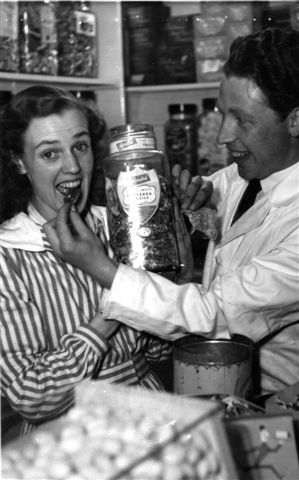
For more information about Southampton Bands, Reg & Dorothy Calvert and other pop groups and Reg Calvert visit: www.davidstjohn.co.uk
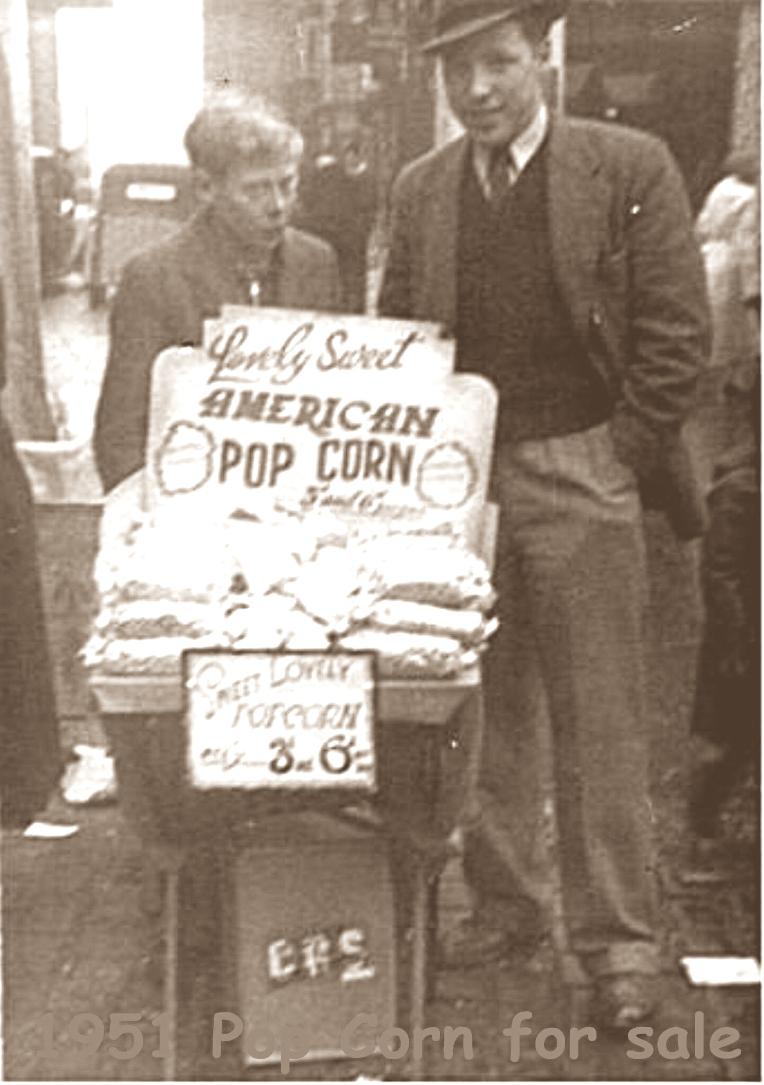
- Home
- Picture gallery
- Blog
- SCHOOL OF ROCK ROLL - Play
- 'DEATH OF A PIRATE' Play
- PHOTOS - from play REG - Death of a Pirate
- picture-gallery- RE-UNIONS
- CLIFTON HALL - photos
- DANNY STORM - photos
- BUDDY BRITTEN - PHOTOS
- REG CALVERT - Photos and History
- REG and DOROTHY CALVERT - photos
- PINKERTON'S ASSORTED COLOURS
- THE FORTUNES - photos
- ROBBIE HOOD and his Merrie Men
- THE BEATLES and Tanya Day
- RADIO CITY - Pirate Radio Station
- POPCORN TO ROCK 'N' ROLL
- S K MOORE
- Re-Unions of the 'boys'
- Southampton Photographs
- RE-UNION 2016